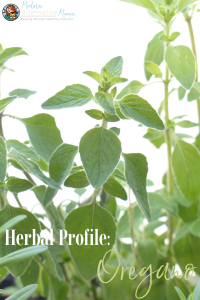By Sarena-Rae Santos, Natural Health Blogger
What is Oregano
Oregano is an herb from the mint family or Lamiaceae family. There are many different types of oregano, but Oregano vulgare, also known as Origanum, Spanish thyme, and wild marjoram, is the most commonly used in the herb world. These perennial herbs have been used for thousands of years to add flavors to dishes and treat health conditions in Mediterranean countries, western Asia, Greek, Italy, Mexico, and the United States (1).
Health Benefits of Oregano
Some of the excellent medicinal benefits oregano has traditionally been used for include:
Rich In Antioxidants
Several studies have been done on the high content of antioxidants in oregano, and the total tocopherol content was between 228 ppm to 672 ppm (2). Antioxidants can help fight damage from harmful free radicals. The buildup of free radicals has been linked to chronic diseases, such as cancer and heart disease. Due to the antioxidant activity of tocopherol, oregano has been associated with numerous health benefits, such as reducing the risk of cardiovascular disease, inflammation, and more (3).
Antibacterial Properties
An antibacterial property is when a substance, or in this case, an herb, can destroy or suppress the growth and reproduction of bacteria (4). Oregano contains certain compounds that have potent antibacterial properties. One study concluded that Origanum heracleoticum L. might be an effective alternative for antibacterial remedies enhancing the healing process of bacterial infections and preventing the development of antibiotic resistance (5).
Antimicrobial Properties
An antimicrobial property is when a substance, or in this case, an herb, can kill or suppress the spread of microorganisms such as bacteria, viruses, protozoans, and fungi (6). One study compared the antimicrobial activity of oregano, sage, and thyme essential oils. Oregano was one of the most efficient essential oils against bacteria, second to thyme Studies showed that oregano could help block the growth of Escherichia coli and Pseudomonas aeruginosa (7).
Antiviral Properties
An antiviral property is when a substance, or in this case, an herb, can kill a virus or suppress the virus’ ability to replicate, multiply or reproduce (8). In addition to oregano’s antibacterial and antimicrobial properties, some studies have found that some components of oregano may also protect against some viruses. In one study, carvacrol inactivated norovirus, a viral infection that causes diarrhea, nausea, and stomach pain, within one hour of treatment (9). Another study found that thymol and carvacrol inactivated 90% of the herpes simplex virus within one hour (10).
Anti-Inflammatory Properties
Oregano may have anti-inflammatory properties that could improve your overall health. Chronic inflammation has been linked with many diseases, such as type 2 diabetes, asthma, and certain cancers (11). The high antioxidant levels of oregano can help neutralize free radicals, reducing inflammation (12). Oregano contains compounds like carvacrol that have been shown to have anti-inflammatory properties; in one animal study, carvacrol reduced swelling in the paws of mice by up to 57 percent (13). In another animal study, a mixture of thyme and oregano essential oils reduced the number of inflammatory markers in mice with colitis or an inflamed colon (14).
May Prevent & Kill Certain Cancers
Oregano is high in antioxidants, which can neutralize free radical damage and aid in cancer prevention. One study treated human colon cancer cells with oregano extract and found that it stopped the growth of cancer cells and helped kill them off (15). In another study, they concluded that carvacrol, one of the components in oregano, also helped suppress the growth and spread of colon cancer cells (16).
Safety Concerns
I could not find any herbal profiles from herbalists, but I did find a mainstream source expressing known interactions between oregano and antidiabetic, anticoagulant, and antiplatelet drugs (17).
According to aromatherapist Wendy Robbins, essential oils should never be taken internally or applied undiluted. Oregano essential oil should be diluted at the recommended dermal maximum of 1.1%. There are indications that oregano essential oil may cause embryotoxicity and a moderate risk of skin sensitization (18).
How to Use Oregano
You can find oregano in dried bulk, capsules, powders, extracts, oils, or tinctures. Tinctures always contain the most concentrated amount of herbs. Teas and soups are also options, especially when following ayurvedic medicine recipes. If you’re a DIY person, some great starter recipes are:
Follow the recommendations of any supplement; some of my recommendations include:
- Gaia Herbs’ Oil of Oregano Capsules are a natural antioxidant source, containing phytochemicals that help support the body’s natural resistance to immune challenges. Gaia Herbs’ supercritical CO2 extract of oregano volatile oils contains phenols, including carvacrol and thymol. These oils help support the intestines and a healthy immune response.
- Garden of Life’s Oil of Oregano Drops offers traditional support with modern convenience, delivering 34mg of Organic oregano leaf extract in a base of cold-pressed extra virgin olive oil & mixed tocopherols from non-GMO sunflower.
- Plant Therapy’s Organic Oregano Essential Oil is one of the best oils to use when cold and flu season rolls into town. Use it to help fight off a sore throat or sinus infection. It may help with candida, rashes, and other skin issues. Start with fewer drops in a diffuser and adjust for potency as needed.
Disclaimer: This post is not intended as medical advice. These statements have not been evaluated by the FDA, and nothing in this post is intended to diagnose, treat, or cure anything. If you have questions, please do your own research or seek advice from a health professional.
If you have oregano in your natural medicine cabinet, how do you use it?


